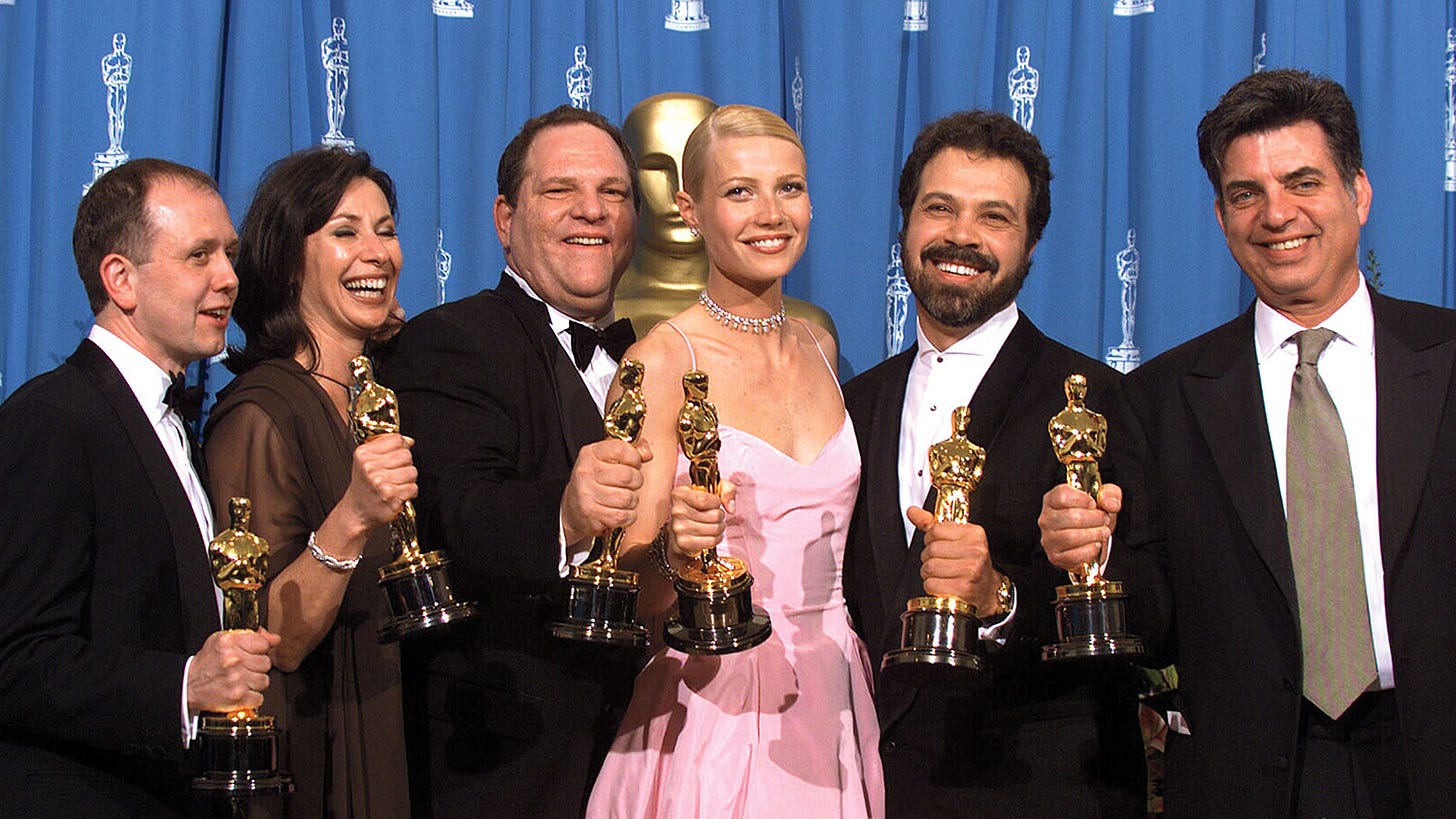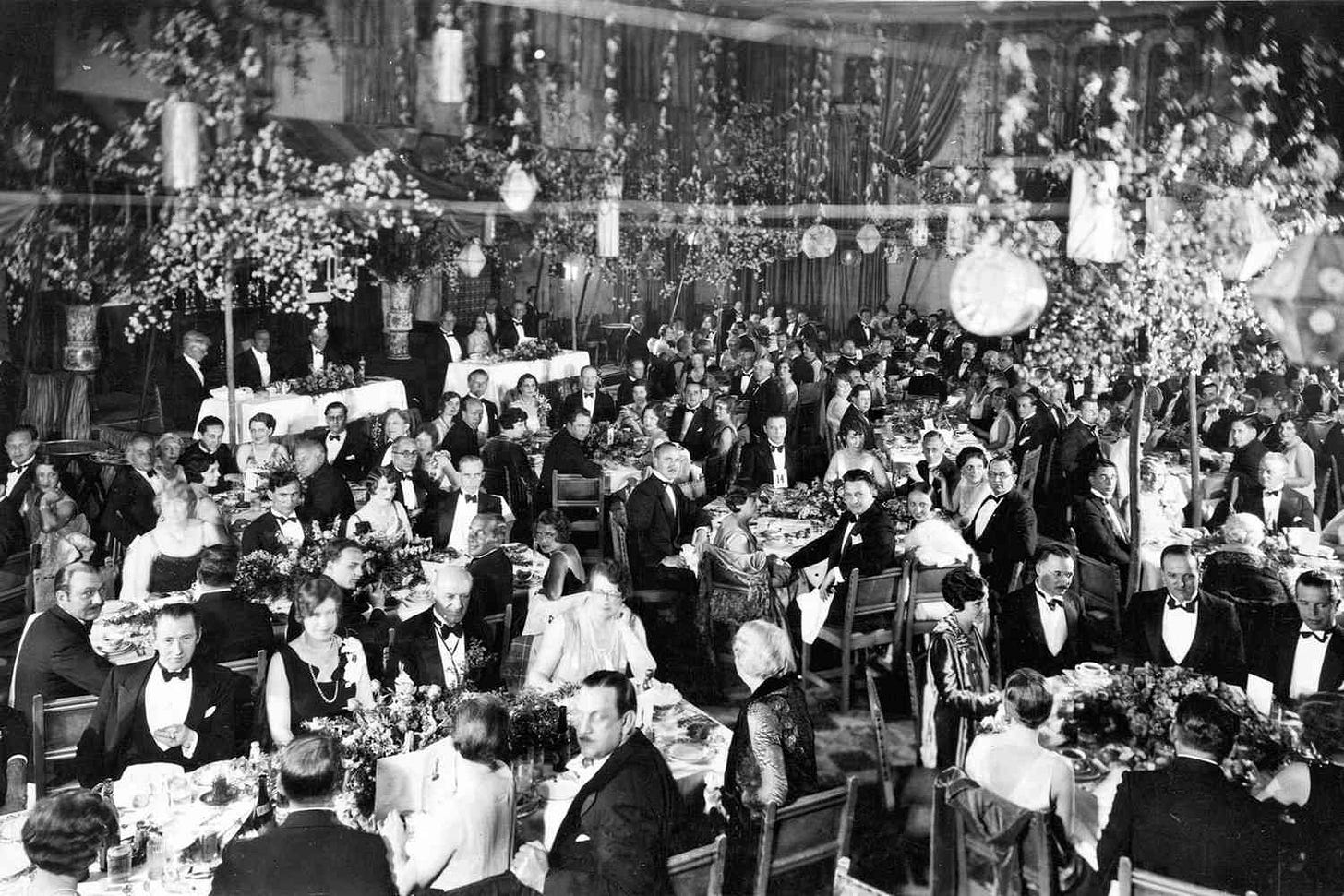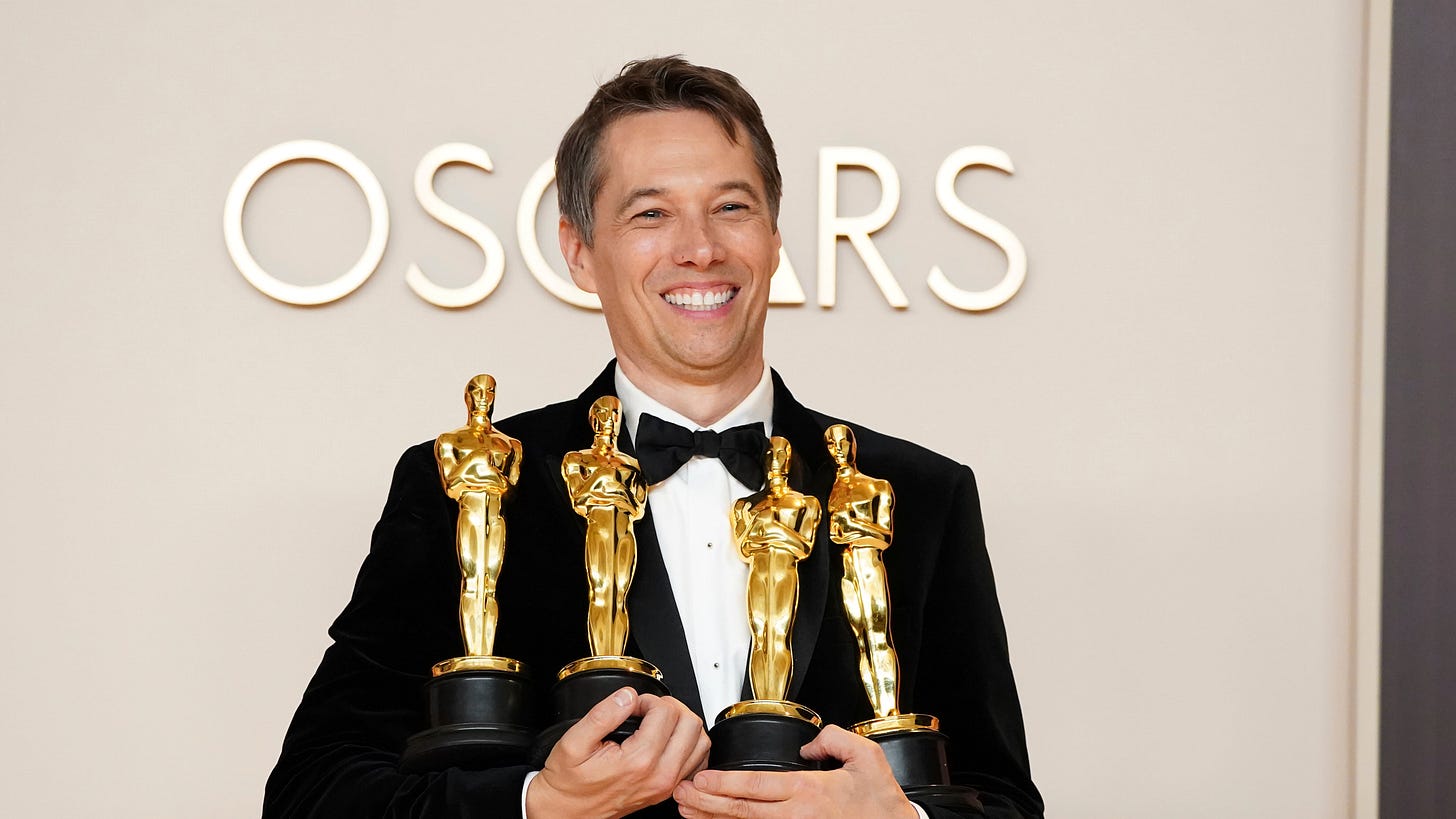Industrialization and mass production. The fragility of the labor movement. The impossible double standard faced by working women. The very real cost and absolute absurdity of a moral panic led by charlatans in the government. The halting backward and forward progress of people of color as they fight for dignity and fairness in a system stacked against them. The darkness of a megalomaniacal sexual predator who stretches the rules to their outer limit in order to win at all costs.
Sure, I could be talking about the last 20 years, or the last 40, or the last century of American history. But this is a space devoted specifically to film, and there is a title up there at the top of this thing, so you might have guessed that I am actually making a somewhat vague reference to the Oscars.
Just before this year’s ceremony, I finished reading the book Oscar Wars: A History of Hollywood in Gold, Sweat, and Tears by Michael Schulman. It charts the course of the cultural institution from its seemingly cynical beginnings (part of the Academy’s formation may have been a ploy to prevent craft unionization and the first Oscar ceremony lasted all of 20 minutes) to its glamorous, outsized, skepticism-inducing present. You know, the one where one of the most famous movie stars in the world slapped an almost-as-famous comedian on live television and many of us reasonably wondered if it was a publicity stunt.
Schulman handpicks the moments and the movements rather than opting for an exhaustive chronological history of the awards. And that structure and focus on the industry machinations behind the films being celebrated cast the Oscars in a new light.

The Academy Awards are ostensibly a celebration of the best films of the year. But very early on in the book Schulman acknowledges that the exercise of picking a Best Picture or Best Actor of the previous year is a silly one. Indeed, the very first line of his book says that the Oscars are “always getting it wrong.”
And that’s true, I suppose, if you focus only on the awards themselves. But widen your aperture, and the picture that begins to emerge is that of a body that has always been beholden to and simultaneously influencing of the forces that have shaped America writ large. The Oscars are at once a mirror, a window in to the near-future, and a magnifying glass refracting sunlight on to the rest of us. The Oscars do not reveal any truths about the movies they purport to celebrate, but they do reveal a great deal about the grander debates and discussion of which they are unquestionably a part.
This reframing of what the Oscars are all about gives them extra weight - elevating them from some sort of cotton-candy affair - and blunts the most valid criticism of them: that they perpetually get it wrong. If you begin to think of the Academy Awards as a historical record of how we thought and talked about and battled over films instead of a historical record of the very best films, then they are put in to proper perspective.
Suddenly, it’s not about whether Citizen Kane should have won Best Picture and more about how a wealthy man with a huge amount of control over the media was able to take some measure of revenge on a film he found unflattering, and how the studio system at the time was largely accepting because of the threat posed by the man who made the film.
Suddenly, we’re not relitigating Halle Berry’s performance in Monster’s Ball, and instead reconsidering the difference between recognition of great work and acceptance from your peers.
Suddenly, it’s not about whether Saving Private Ryan was robbed by Shakespeare in Love - we all know it was - and much more about an amoral man gaming a system that, because of decorum, no one in the establishment was willing enough to defend, and how that reticence enabled a theft.
These examples are, of course, snapshots from Hollywood’s past, but they are also directly relatable to this moment. These are timeless stories, to be sure, but they also reflect the fact that motion picture industry is so often just ahead of where the country will soon be.
The smug celebrity droning on about some social cause as part of their acceptance speech is an Oscar night trope - maybe the biggest one of all. But films, yes, even the ones celebrated at the Oscars, are most often a leading indicator of the mood of the culture. In that sense, Oscar night is as good at projecting where we might all be headed as it is bad at recapping the year that was.
What did we learn at the Oscars this year? Time will tell, of course. But it’s hard not to regard the triumph of Anora and the auteur behind it, Sean Baker, as part of a continuum of sweeping change within the broader industry.
Moviemaking has gotten more cosmopolitan and more democratic over the last decade. Wins for Moonlight and Parasite reflect that trend and hint that it will endure. Both films continue to enjoy near-universal acclaim - indeed I would argue that they are the two best Best Picture winners of the 21st century. Each was made cheaply and far away from the industry’s erstwhile center in Los Angeles.
Enter Anora, which doesn’t reach the heights of the other two films, but does take this trend to a sort of maximalist endpoint. Baker has eschewed the Hollywood mainstream in just about every possible way, combining a guerilla-style approach to the craft (one of his previous films was shot entirely on iPhones) with a gaze for characters, especially sex workers, who almost never end up being portrayed at all in Hollywood, much less end up being portrayed positively. Last Sunday, he became the first person to win four Oscars in a single ceremony.
Baker represents disruption to be sure - the kind that only feels possible in a world where the technology of filmmaking and of distribution makes it far easier to find an audience. But in his acceptance speeches, there was also a traditionalist streak.
“Filmmakers, keep making films for the big screen,” Baker said in accepting the prize for Best Director. It was hard not to notice that Quentin Tarantino, who has loudly advocated for the same thing for years, was the person who had just given him another statue.
Baker was expressing a strain of cinematic essentialism. A half-decade ago, it would have sounded desperate, the kind of plea uttered as a Marvel character crushes you under their foot. Now, it sounds like a battle cry where some sort of victory seems possible. Because while tech has made Baker’s success possible, it has also inspired mass disillusionment, and, by extension, appreciation for the way things used to be.
As ever, I would argue that the Oscars are a little bit ahead of the curve here, if anything. The culture is changing. Baker’s triumph - and his words in his moment of triumph - are a harbinger.




